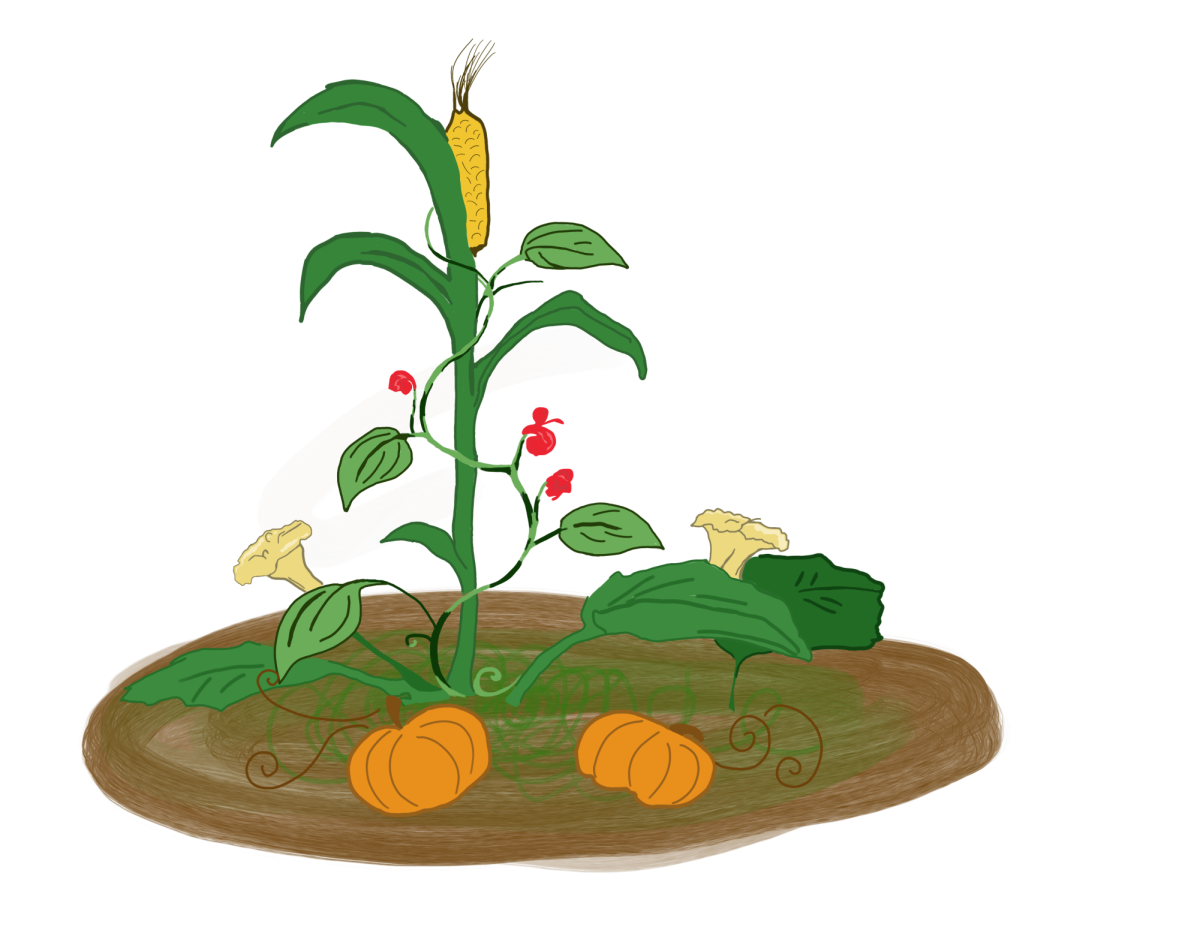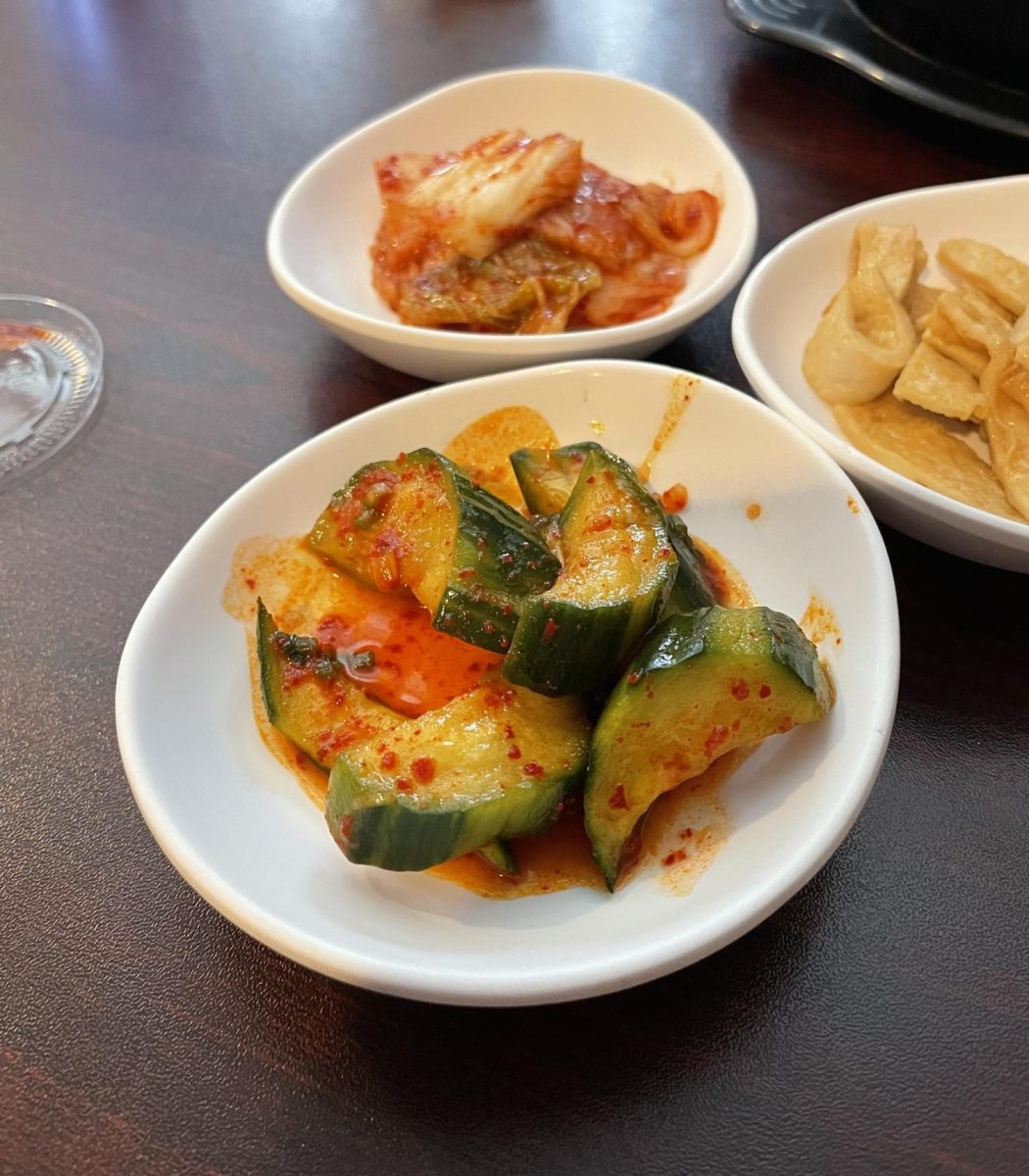Monocultures, the cultivation of one crop in an area, are less sustainable than polycultures, the cultivation of multiple crops within an area. Deforestation for agriculture is a problem within itself, but using the space for a monoculture further destroys the land. When trees are cleared for one crop, the land isn’t used optimally. Monocultures reduce the availability of nutrients within the soil because the crop is continually utilizing the same nutrients. This causes soil exhaustion, the point at which soil can no longer support plant life.
“Crops like corn and soybeans are grown in monocultures,” Community Outreach Coordinator for Known & Grown STL Nicki Morgan said. “Corn in and of itself is not bad for the environment, it is the practice of raising that corn in a certain way that can be harmful.”
The Three Sister system is an Indigenous American agricultural method that has been used for around 3,000 years. In this system, corn, beans and squash are grown next to each other. The corn stalks give support for the beans to climb on, the beans add nutrients to the soil and the leaves of the squash provide shade that conserves the water in the ground.
“If you think about raising corn in a three sister system where you grow corn and you grow squash and you grow beans, and rather than being solely extractive, you’re putting nutrients back into the soil as you’re growing these crops,” Morgan said. “You can have this symbiosis in your systems.”










